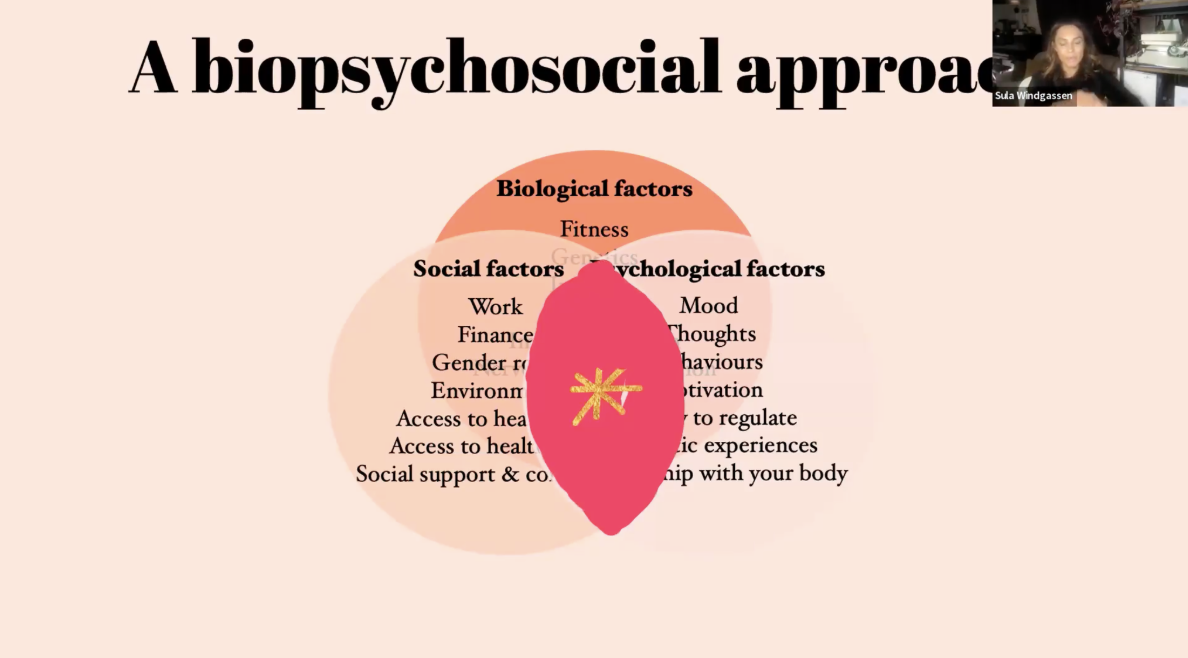This is an area I often refrain from writing about too much, especially in shorter forms, as I do not want to inadvertently villainise the medical profession. Far from it actually. There are so many incredibly patient-centred practitioners doing so much good for their patients, advocating hard and providing excellent medical care. But, as a health psychologist I see the harm that comes with the break down in the relationship between patient and practitioner.
Sometimes the suggestion of a psychological treatment for a physical condition can be met with emotions of frustration or anger. You - the doctor- may feel like you are suggesting an alternative that could be valuable in their health journey and offer the patient the support they may need. However, the patient feels dismissed and like they are being told the symptoms are “all in their head.” It can be a tricky balance to reach.
In many appointments, time is limited and there is a pressure to see people quickly and efficiently which can lead to good intentions being miscommunicated. There are some more appropriate ways to approach suggesting psychological therapy for physical conditions which can help the patient feel seen and heard, as opposed to dismissed.
In many cases of chronic conditions, it can take a while to get to the bottom of it. As a patient, they’ve been back and forth to the doctors trying to figure out either what is happening to their body or what they can do to help their body, only for the doctor to suggest that they go to therapy.
Understandably, this makes them feel uncomfortable. It makes them feel angry - like they are being fobbed off or not listened to. Naturally, it can create thoughts that their physical and very real symptoms are being characterised as fake and just in their head.
It might be that it fills them with fear and anxiety. The suggestion of this treatment could mean that they feel unable to rely on doctors to help address the physical problem, that they will be on their own and battling for help in finding a solution. It feels terrifying - and like the pain will be endless.
As a health psychologist trained in using trauma-specific therapy approaches (T-CBT and EMDR), I have noted a trend in the trauma memories I help clients to process. A lot of them centre around the fear “I won’t be helped” and relate to times when doctors or other healthcare practitioners have told them that their symptoms are not real or not something that they will be able to help them with. This has been so distressing that the brain has not been able to emotionally process, instead activating a physiological threat mode that sees the nervous system become hypervigilant and reactive.
Although suggesting therapy is not the same as these sentiments of ‘you can’t be helped’ and ‘your symptoms aren’t real’, it very much can feel similar, especially when therapy is offered as the only solution without additional physical follow up or investigation or, indeed, explanation why therapy might help physically.
In a previous article, this was explored a little more. This isn’t to say that as a healthcare practitioner you are at fault, more often than not the suggestions are meant with the best intentions. But often patients have faced medical dismissal with their conditions, and struggle daily with physical symptoms.
If you have or may in the future suggest psychological treatment for a physical condition, you may find the following guidance useful - particularly the rationales behind the guidance.
Consider where in the journey the health journey the patient is at and how therapy might fit with that - and explicitly discuss it.
You might imagine that suggesting psychological therapy as a last in the line solution makes sense because all other options have been tried, but this can set negative expectations of therapy and make people feel less inclined. It might feel counterintuitive, but informing patients early in their journey with physical health issues that tailored psychological therapy can provide important support and even improve health outcomes, is much more accurate, hopeful and inviting.
Clarify you are not suggesting psychological therapy because symptoms aren’t real
Suggesting a psychological treatment can imply the issue has psychological cause, unless explicitly stated otherwise. Simply acknowledging that the symptoms your patient is experiencing are real can be enough. It can be even more comforting to explain some of the ways that psychological experiences influence physical experiences. I have a previous article on this.
Explain the evidence base for psychological therapy in the context of chronic illness
There is many decades worth of research showing how psychological therapy adapted for physical health conditions can improve quality of life, wellbeing and even physical health outcomes.
Don’t present psychological therapy as the only option
Healing or improving health and wellbeing often requires an integrated approach combining some sort of physiological approach (e.g. medical or allied health or lifestyle) and psychological (e.g. therapy, behavioural support, peer support). When patients are discharged from medical treatment with the suggestion of therapy, they can feel a huge pressure to think or feel differently, which is often creates mental spirals that are unhelpful. I also find that psychological therapy enhances biomedical treatment, rather than necessarily being a replacement for it.
When time is limited and there are other things to discuss, going through all of this may feel too much, so collate trusted resources to provide patients with that can give more thorough explanations in different formats.
Below is a webinar I have created which delves into where psychology fits into health, how it affects it and what individuals can do to work with their psychology and biology. Click on the image below to be taken to the recording.

Empty space, drag to resize
Here are some articles I have created which could be useful to explain psychological treatments for physical conditions:
The journey between brain and gut
Why your doctor recommended CBT
Dr. Sula Windgassen is a leading Health Psychologist, CBT and EMDR therapist, and Mindfulness teacher with two doctoral degrees - a research PhD in Psychological Medicine at Kings College London, and a practitioner psychologist Doctoral Qualification with the British Psychological Society as a Health Psychologist.
Dr. Sula is also the Director of the Mind Body Blossom Clinical Health Psychology Practice which offers trauma-informed support for people experiencing persistent physical symptoms and chronic illness.
Dr. Sula has dedicated her entire career to exploring the powerful intersection between physical and mental health. Her groundbreaking research on gut-directed psychotherapy for IBS symptoms has been featured in major media outlets including the BBC, The Guardian, The Independent, and The Telegraph. Additionally, she has a number of published academic papers, and regularly collaborates with leading institutions worldwide.
Dr. Sula is chartered with the British Psychological Society and accredited and regulated by the Health Care & Professionals Council (HCPC).


